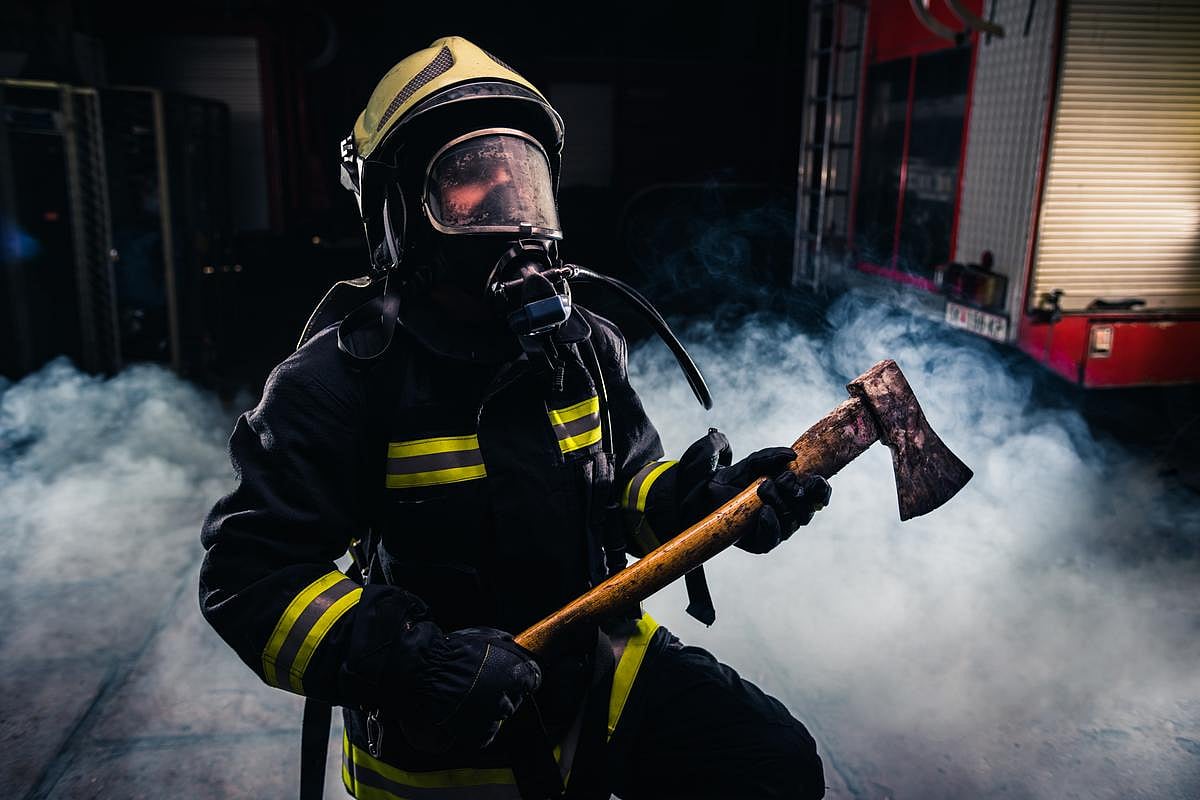Patient Resources
Get Healthy!
Wildland Firefighters Could Soon Get Mandatory Respiratory Protection
- November 19, 2025
- I. Edwards HealthDay Reporter

For years, federal wildland firefighters have worked long, dangerous shifts with almost no protection from the thick smoke around them.
Now, a new bipartisan bill in the U.S. Senate aims to change that.
The Healthy Lungs for Heroes Act, introduced by Sen. Adam Schiff (D-Calif.) and Sen. John Curtis (R-Utah), would require the U.S. Forest Service and the Interior Department to create and enforce rules for respiratory protection.
Under the proposal, firefighters and support crews would have to wear approved respirators or masks whenever smoke levels exceed limits set with the help of the Occupational Safety and Health Administration and the National Institute for Occupational Safety and Health.
"Firefighters are heroes, and it’s critical that we do everything possible to ensure they’re protected from the health risks associated with wildfires," Schiff told NBC News. "I’m going to push for Congress to pass this commonsense proposal."
Wildland firefighters say they support better protection, but they also warn that the wrong equipment could make an already exhausting job even harder.
Many city firefighters use a self-contained breathing apparatus (SCBA), which includes a full mask and an air tank. But federal wildland crews often hike miles into steep, remote terrain carrying 80 pounds or more of gear — on lengthy shifts.
Adding a heavy air tank isn’t practical.
"Anything extra makes our work so difficult," Lalo Romo, a fire engine captain and union steward with the National Federation of Federal Employees, said to NBC News.
He said tanks can run out quickly when firefighters are exerting themselves. “The harder you breathe, the faster you’re gonna take that air.”
Romo said he supports the bill but hopes federal agencies choose equipment tailored to actual field conditions.
The Forest Service said in a statement to NBC News that it is working with federal partners to test gear and create realistic protection policies.
"Our firefighters deserve comprehensive respiratory protection that is both safe and practical," the statement said.
Research shows the risks are real. A 2020 Stanford report found that repeated smoke exposure can shorten a firefighter’s life expectancy by about 10 years.
Smoke from wildfires contains dangerous substances such as carbon monoxide, aldehydes, benzene, formaldehyde and tiny particles that can cause serious harm.
Despite the health risks, firefighters often work 16-hour days, sometimes parachuting into areas unreachable by road. They may go days without changing gear or getting a chance to wash off smoke and ash.
In September, the Forest Service allowed voluntary use of N95 masks for the first time. But those masks don’t filter out gases or vapors, and officials say they still can’t be worn during the most intense work until safer options exist.
Retired federal firefighter Riva Duncan recalled to NBC News that she was denied a request for a washing machine and dryer years ago to clean contaminated gear.
"People don’t think about what they can’t see," Duncan said.
Union leaders say the new bill is a first step toward long-needed change.
"There’s finally light being shed on this," Steve Gutierrez of NFFE, told NBC News. "There’s so much more we could be doing, but it would require a whole culture shift."
More information
The U.S. Environmental Protection Agency has more on the health impacts of wildfire smoke.
SOURCE: NBC News, Nov. 17, 2025

